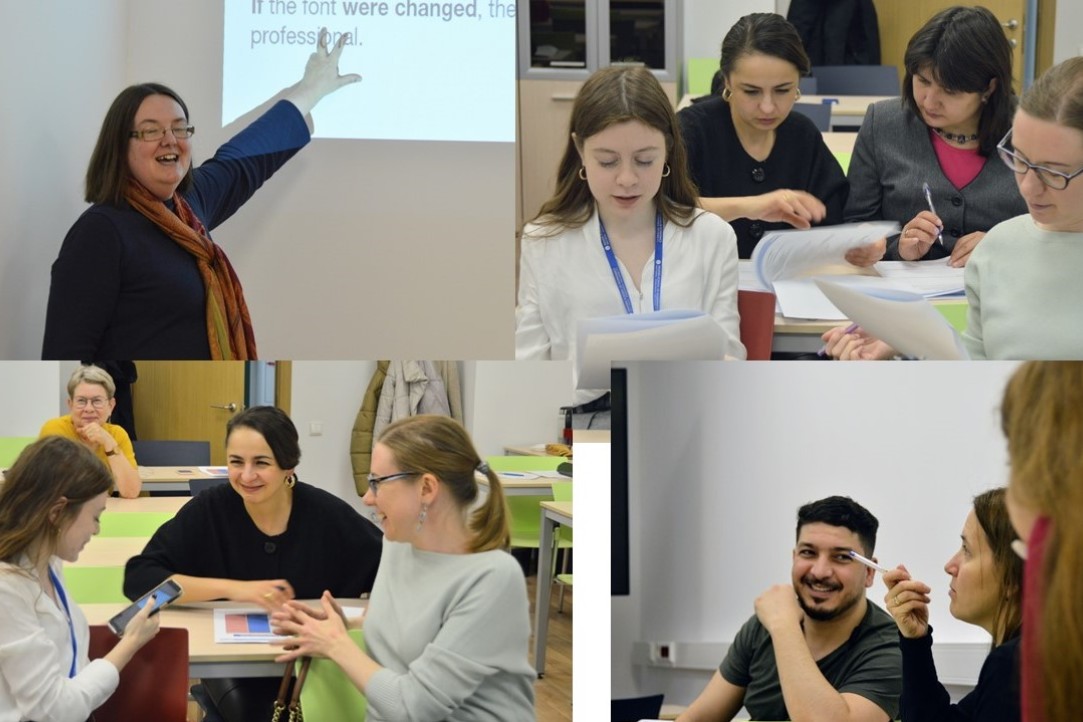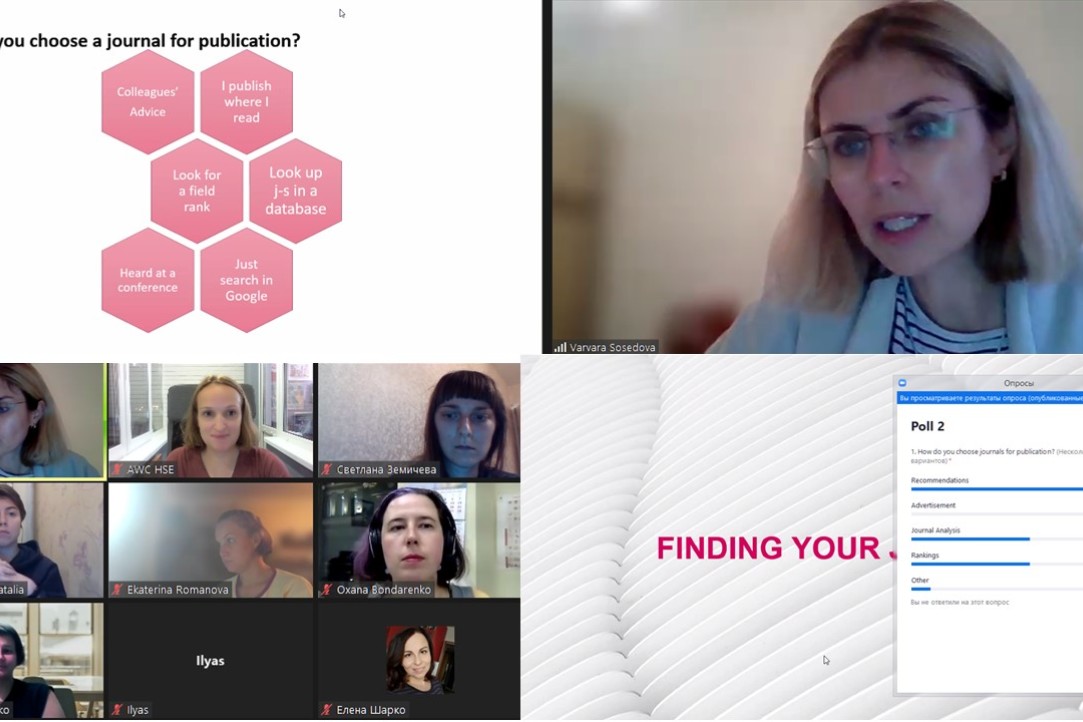.jpg)
“Own” your research
This week the participants of the workshop "Where is the Author in This Text?" plunged themselves into the analysis of the author’s voice in research articles from different disciplines.
.jpg)
Debunking myths about research writing at the 6th BRICS International School
The Academic Writing Center expands its outreach activities.
.jpg)
English over a cup of tea
The new format - watching and discussing a short film over tea and cookies - as part of the "Five-o'clock tea at the AWC"project was a success.

Criticism: how to balance effectiveness and politeness
The Academic Writing Center ran a face-to-face workshop on constructive criticism in the academic context with our speaker Heather Belgorodtseva.

How to meet the journal’s language requirements
The AWC successfully completed the online course with the trainer Varvara Sosedova "Targeting your Writing to the Journal Requirements: Preparatory Stage."
.jpg)
International Education Week
Every year the third week in November is dedicated to celebrating the benefits of- international education and exchange worldwide in an initiative called International Education Week.
.png)
You’ve missed a lot…
On November 8, the Academic Writing Center hosted a very helpful online seminar "Identifying Disciplinary Preferences in Research Writing."

Abstract: The face of your research
Abstract is the first and often the only description of a study that potential readers see; therefore, it plays a crucial role in promoting your research. This is why we chose writing an abstract as the topic of the first face-to-face workshop in a long time.

Collaboration and experience sharing
On October 20-22 the AWC team members took part in the IV international conference "Academic Science Communication: Teaching Non-Native English Speaking Scholars in a Multidisciplinary, Multicultural Context" organized by the National Writing Centers Consortium (NWCC).
.png)
What article to use
This question is always tricky. Even if you ask a native English speaker why they use this or that article, the answer could often be “I just feel it.” Extremely unpredictable, meaningful, and impactful in terms of creating a certain context, articles can confuse even the most proficient non-native speakers.
